For some people, winter is their favourite season, whilst others absolutely loathe it, hating the cold weather it brings and the short dark days. Meanwhile there is another group of people who look at winter with a sense of impending doom, as well they might. These are the ones who suffer from a condition called seasonal affective disorder, better known as SAD, a form of depression affecting them both physically and emotionally which is connected to the change of seasons. Often referred to as a winter depression since it most commonly affects people during the winter season, there is also a rare summer kind. Winter depression usually starts to kick in during the autumn, is at an optimum during the short winter days and then starts to recede before going into remission as winter fades away and we enter spring, laying dormant until it reappears at around the same time the following year.
 Whilst it may be fair to say that many people would say that they are generally less happy during the winter months, party season aside, since constantly getting wet/cold isn’t that much fun and it may seem like we are constantly living in the dark, SAD is something totally different. Symptoms range from mild to totally debilitating and may include depression, feeling hopeless or worthless, general malaise, low energy, tiredness, irritation, social withdrawal and a loss of interest in previously enjoyable activities, difficulty concentrating or brain fog, increased appetite and cravings for carbohydrates or sweet food which ultimately leads to weight gain, delayed onset of sleep, hypersomnia (oversleeping and daytime tiredness) and even a depressed immune system.
Whilst it may be fair to say that many people would say that they are generally less happy during the winter months, party season aside, since constantly getting wet/cold isn’t that much fun and it may seem like we are constantly living in the dark, SAD is something totally different. Symptoms range from mild to totally debilitating and may include depression, feeling hopeless or worthless, general malaise, low energy, tiredness, irritation, social withdrawal and a loss of interest in previously enjoyable activities, difficulty concentrating or brain fog, increased appetite and cravings for carbohydrates or sweet food which ultimately leads to weight gain, delayed onset of sleep, hypersomnia (oversleeping and daytime tiredness) and even a depressed immune system.
What causes seasonal affective disorder?
Whilst the exact cause is unknown, studies suggest that SAD is the result of a combination of biological and environmental factors:
Serotonin deficiency: Serotonin, along with dopamine and endorphins, is one of the feel-good hormones, and is associated with happiness, focus and calmness. It has a role in several key functions in the body, including sleep, digestion, nausea, and wound healing, and influences happiness, learning, memory and sexual desire. Serotonin is released from the pineal gland to produce melatonin.
The production and release of serotonin is stimulated by Vitamin D. Although found in some foods, the body gets most of its vitamin D from direct sunlight which is often lacking during the cold winter months, causing a vitamin D deficiency, and ultimately decreasing serotonin levels.
 Irregular melatonin levels: As mentioned, serotonin is released to produce melatonin, so a deficiency in serotonin obviously has a knock-on effect on melatonin levels. Alternatively, some people can produce more melatonin than the body needs, causing levels to spike as it tries to adjust its circadian rhythm, leaving them feeling fatigued and sluggish. Melatonin is the hormone that synchronises the body’s circadian rhythms (24-hour internal clock) which includes the sleep-wake cycle. The body produces melatonin just after it gets dark and acts on receptors in the body to encourage sleep. This is why people often feel more sleepy during the winter.
Irregular melatonin levels: As mentioned, serotonin is released to produce melatonin, so a deficiency in serotonin obviously has a knock-on effect on melatonin levels. Alternatively, some people can produce more melatonin than the body needs, causing levels to spike as it tries to adjust its circadian rhythm, leaving them feeling fatigued and sluggish. Melatonin is the hormone that synchronises the body’s circadian rhythms (24-hour internal clock) which includes the sleep-wake cycle. The body produces melatonin just after it gets dark and acts on receptors in the body to encourage sleep. This is why people often feel more sleepy during the winter.
Disrupted circadian rhythm: As the daylight hours reduce it can disrupt the circadian rhythm, also known as your biological clock, and your body can have trouble adjusting to a normal sleep pattern because of this. On the whole, people tend to sleep longer in the winter, or otherwise experience more daytime tiredness.
How can you treat seasonal depression?
The good news is that there are several options for treating SAD including medication, supplements, light therapy and natural remedies.
Antidepressants: If you suffer from severe SAD your practitioner may prescribe you an antidepressant such as a selective reuptake inhibitor (SSRI) which works by allowing serotonin to have a longer effect on the brain, thus influencing the mood. Once SAD is diagnosed most people will start the treatment mid-Autumn (before the depression starts) and cease treatment once their known affected period has ended. Since this type of depression is seasonal there is no need to continue with treatment outside of this period.
Unfortunately there are side-effects associated with antidepressants including anxiety, dry mouth, dizziness, insomnia, headaches, nausea, tiredness, sweating, weight-gain – in fact some of the same symptoms which you are initially trying to overcome.
 Melatonin: This is the hormone that makes you feel sleepy. The body releases melatonin as it gets dark, and suppresses its release when it is light. During the winter your body may find it difficult to adapt to the changing light levels and release melatonin too early causing daytime sleepiness. Taking melatonin may help the body to readjust the body’s biological clock. This treatment has fewer side effects than antidepressants but can potentially cause drowsiness and impaired cognition.
Melatonin: This is the hormone that makes you feel sleepy. The body releases melatonin as it gets dark, and suppresses its release when it is light. During the winter your body may find it difficult to adapt to the changing light levels and release melatonin too early causing daytime sleepiness. Taking melatonin may help the body to readjust the body’s biological clock. This treatment has fewer side effects than antidepressants but can potentially cause drowsiness and impaired cognition.
Vitamin D supplements: If you are suffering from a vitamin D deficiency due to the decreased amount of light during winter, a vitamin D supplement could help restore low serotonin levels and improve immunity.
 Light therapy: UV light boxes may be used to supplement reduced winter UV light, thus reducing the effects of the shorter days and limited sun exposure and helping to treat SAD by stimulating the body to synthesise vitamin D, and subsequently serotonin. It is recommended to use the box for 40 minutes in the morning for maximum benefits.
Light therapy: UV light boxes may be used to supplement reduced winter UV light, thus reducing the effects of the shorter days and limited sun exposure and helping to treat SAD by stimulating the body to synthesise vitamin D, and subsequently serotonin. It is recommended to use the box for 40 minutes in the morning for maximum benefits.
Lifestyle changes: Additional lifestyle changes can help enhance treatment including establishing a proper bedtime routine, keeping in contact with friends and family, following a balanced diet, exercising, practising relaxation techniques, going outdoors, and trying new (or retaining existing) hobbies and activities.
Natural remedies for Seasonal Affective Disorder (SAD)
Fortunately Nature has gifted us with the awesome power of natural and essential oils to help us overcome the symptoms of SAD which do not have any known side-effects for use in this context.
Essential Oils to Remedy Seasonal Affective Disorder (SAD)
Aromatherapy is becoming increasingly popular for negating the effects of SAD. Known for their anti-depressive, energising, relaxing and sleep-enhancing benefits, in addition to boosting immunity, the right oil can help to enhance our mood and ultimately benefit our health. Research has also shown that essential oils may help to stimulate the release of serotonin. So what are you waiting for?
Citrus Oils for Relief of Seasonal Affective Disorder (SAD)
(Bergamot Essential Oil, Grapefruit Essential Oil, Lemon Essential Oil, Orange Essential Oil)
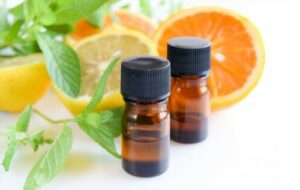 Citrus oils are a ray of sunshine on a dull Winter’s day and have a wide range of benefits to negate the common symptoms of Seasonal Affective Disorder. A 1995 study identified citrus oils as potentially “more effective than antidepressants”. They are incredibly uplifting and soothing to dispel depression, anxiety, anger, frustration, stress, sadness and negative moods. These energising oils diminish mental and physical fatigue, brain fog, sleepiness, and low motivation, and help to promote mental clarity and motivation, enhance cognitive function, and strengthen memory. Furthermore they promote hormone stimulation, such as dopamine and serotonin, and boost immunity. Citrus oils are both uplifting and tranquilising, and can help with sleep issues by lowering blood pressure, slowing the heart rate and preventing negative thoughts, thus preparing the body for sleep, and ensuring a deeper and speedier sleep. Grapefruit in particular can also help with weight issues by increasing metabolism, and reducing cravings and hunger.
Citrus oils are a ray of sunshine on a dull Winter’s day and have a wide range of benefits to negate the common symptoms of Seasonal Affective Disorder. A 1995 study identified citrus oils as potentially “more effective than antidepressants”. They are incredibly uplifting and soothing to dispel depression, anxiety, anger, frustration, stress, sadness and negative moods. These energising oils diminish mental and physical fatigue, brain fog, sleepiness, and low motivation, and help to promote mental clarity and motivation, enhance cognitive function, and strengthen memory. Furthermore they promote hormone stimulation, such as dopamine and serotonin, and boost immunity. Citrus oils are both uplifting and tranquilising, and can help with sleep issues by lowering blood pressure, slowing the heart rate and preventing negative thoughts, thus preparing the body for sleep, and ensuring a deeper and speedier sleep. Grapefruit in particular can also help with weight issues by increasing metabolism, and reducing cravings and hunger.
Use citrus oils as a mood and energy booster in the morning, a relaxant in the evening, and to improve cognitive function or diminish depression, stress or anxiety whenever needed.
Peppermint Oil for Relief of Seasonal Affective Disorder (SAD)
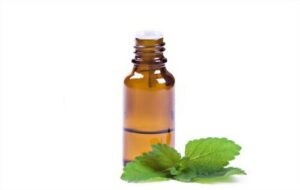 When you are feeling sleepy or sluggish due to either a spike in melatonin or the lack of a good night’s sleep due to a disrupted circadian rhythm, peppermint is your turn-to oil. Energising and invigorating it will dispel tiredness or fatigue and lift the mood. Peppermint relaxes the nervous system to eliminate stress, anxiety, irritability and a bad mood. It stimulates the brain, dispels mental fatigue, increases cognitive functioning, escalates focus, concentration and motivation, enhances memory retention, and is proven to boost mental accuracy and enhance clear thinking. The menthol aroma will also alleviate a headache or migraine and suppress the feeling of nausea.
When you are feeling sleepy or sluggish due to either a spike in melatonin or the lack of a good night’s sleep due to a disrupted circadian rhythm, peppermint is your turn-to oil. Energising and invigorating it will dispel tiredness or fatigue and lift the mood. Peppermint relaxes the nervous system to eliminate stress, anxiety, irritability and a bad mood. It stimulates the brain, dispels mental fatigue, increases cognitive functioning, escalates focus, concentration and motivation, enhances memory retention, and is proven to boost mental accuracy and enhance clear thinking. The menthol aroma will also alleviate a headache or migraine and suppress the feeling of nausea.
Lavender oil for Relief of Seasonal Affective Disorder (SAD)
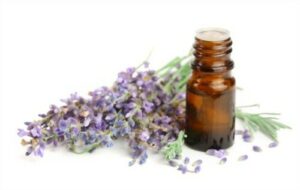 The main constituents in lavender oil, linalool linalyl acetate, help to support the limbic system and balance serotonin levels, subsequently inducing relaxation, and reducing stress, tension, anxiety, nervousness, restlessness, depression and negativity. Its anti-anxiety and antidepressant effects have been demonstrated in clinical trials. Traditionally used for its sedative properties, lavender remains the most popular natural treatment for insomnia, sleep apnoea and improving overall sleep quality. Lavender oil interacts with the neurotransmitter GABA, to calm the nervous system and install mental calm, relaxation, and reduce negativity such as anger and irritation to promote sleep. It can also provide a more restful sleep due to its ability to increase slow-wave sleep which subsequently promotes muscle relaxation, slows the heart rate and lowers blood pressure and body temperature. Furthermore, lavender may also stimulate the release of the sleep hormone, melatonin, which helps to control the sleep cycle.
The main constituents in lavender oil, linalool linalyl acetate, help to support the limbic system and balance serotonin levels, subsequently inducing relaxation, and reducing stress, tension, anxiety, nervousness, restlessness, depression and negativity. Its anti-anxiety and antidepressant effects have been demonstrated in clinical trials. Traditionally used for its sedative properties, lavender remains the most popular natural treatment for insomnia, sleep apnoea and improving overall sleep quality. Lavender oil interacts with the neurotransmitter GABA, to calm the nervous system and install mental calm, relaxation, and reduce negativity such as anger and irritation to promote sleep. It can also provide a more restful sleep due to its ability to increase slow-wave sleep which subsequently promotes muscle relaxation, slows the heart rate and lowers blood pressure and body temperature. Furthermore, lavender may also stimulate the release of the sleep hormone, melatonin, which helps to control the sleep cycle.
The wonderful sweet floral aroma can also help to boost stamina and memory, create clear thinking, and enhance concentration and focus, in addition to relieving pain from a headache or migraine, and reducing nausea.
Patchouli oil for Relief of Seasonal Affective Disorder (SAD)
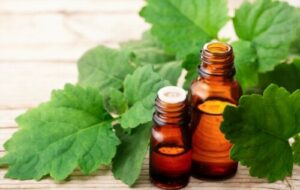 This sweet earthy smelling oil eases stress, anxiety, depression and fatigue by regulating serotonin. Inflammation is believed to play a role in depression and patchouli can help to reduce inflammation through various pathways in the brain. It grounds and balances the emotions, clearing the mind and allowing for increased focus and concentration, and provides relief from headaches, as well as being a natural remedy for insomnia.
This sweet earthy smelling oil eases stress, anxiety, depression and fatigue by regulating serotonin. Inflammation is believed to play a role in depression and patchouli can help to reduce inflammation through various pathways in the brain. It grounds and balances the emotions, clearing the mind and allowing for increased focus and concentration, and provides relief from headaches, as well as being a natural remedy for insomnia.
Rose oil for Relief of Seasonal Affective Disorder (SAD)
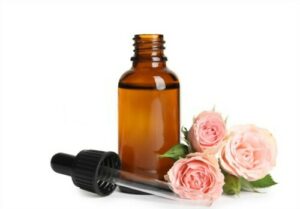 Rose oil contains compounds that may influence serotonin receptors to improve mood and enhance well-being. It effectively decreases the level of the stress hormone cortisol in the blood and stimulates the release of a chemical called dopamine which is believed to be pivotal in reducing the symptoms of depression.. Rose oil is a powerful mood booster and stimulates the brain to release endorphins which are also known as “feel-good” hormones. It eliminates stress, nerves and mental fatigue, calms, soothes, and balances the emotions, promotes self-confidence, and boosts self-esteem. Rose oil can help bring equilibrium to the emotions, and also helps to stabilise hormones, and can alleviate low libido, another symptom of Seasonal Affective Disorder.
Rose oil contains compounds that may influence serotonin receptors to improve mood and enhance well-being. It effectively decreases the level of the stress hormone cortisol in the blood and stimulates the release of a chemical called dopamine which is believed to be pivotal in reducing the symptoms of depression.. Rose oil is a powerful mood booster and stimulates the brain to release endorphins which are also known as “feel-good” hormones. It eliminates stress, nerves and mental fatigue, calms, soothes, and balances the emotions, promotes self-confidence, and boosts self-esteem. Rose oil can help bring equilibrium to the emotions, and also helps to stabilise hormones, and can alleviate low libido, another symptom of Seasonal Affective Disorder.
How to Use Essential Oils for Seasonal Affective Disorder (SAD)
 There are a selection of ways in which you can use essential oils to help alleviate SAD:
There are a selection of ways in which you can use essential oils to help alleviate SAD:
- Add a couple of drops to your diffuser or oil burner as per the manufacturer’s instructions.
- Add a few drops to a tissue or cotton pad or smell direct from the bottle as required.
- Mix a few drops of your chosen oil (not recommended with peppermint) to a bath product or some epsom salts and add to a warm bath. Particularly recommended before bed to help enhance sleep in addition to reaping the psychological benefits.
- Dilute your chosen oil/oils with a carrier oil, such as almond oil, jojoba oil or grapeseed oil and massage a few drops on your temples, feet, wrists, neck, or the skin behind your ears, or a full body massage if you prefer. To dilute, add 60ml of carrier oil to a glass bottle (preferably dark glass) and add approx 20 drops of your chosen essential oil(s). Place the lid on the bottle and gently roll in the palm of your hand for 30 seconds to blend. Store in a cool dark place.
- Add a couple of drops to some water and spray your bedding or use it as a room spray.
- Add a couple of drops to your favourite body lotion, cream or butter.
Note: Essential oils should never be applied to the skin undiluted. Always make a patch test before use.
Natural Oils
In addition to essential aroma oils, you may also find the following natural oils beneficial:
Walnut Oil for Relief of Seasonal Affective Disorder (SAD)
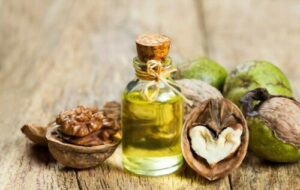 Walnut oil is an excellent source of the essential amino acid tryptophan which reinforces the nervous system, helps to make melatonin and serotonin, reduces anxiety and depression, relieves fatigue and regulates sleep. Studies have indicated that walnuts lower depression symptoms and increase energy levels. Walnut oil is also a good source of the omega-3 fatty acid alpha-linolenic (in fact one tablespoon contains more than 8 grams, or over 5 times the daily recommended intake), and studies have linked an omega-3 deficiency with seasonal depression since they help to maintain healthy levels of the brain chemicals including dopamine and serotonin.
Walnut oil is an excellent source of the essential amino acid tryptophan which reinforces the nervous system, helps to make melatonin and serotonin, reduces anxiety and depression, relieves fatigue and regulates sleep. Studies have indicated that walnuts lower depression symptoms and increase energy levels. Walnut oil is also a good source of the omega-3 fatty acid alpha-linolenic (in fact one tablespoon contains more than 8 grams, or over 5 times the daily recommended intake), and studies have linked an omega-3 deficiency with seasonal depression since they help to maintain healthy levels of the brain chemicals including dopamine and serotonin.
Lettuce Seed Oil for Relief of Seasonal Affective Disorder (SAD)
 Best known for its sleep inducing abilities, lettuce seed oil may be able to help combat the effects of the winter months on your sleeping habits, as well as alleviating anxiety and depression. These effects have been compared to those of a well known commonly prescribed medication for anxiety and sleep. A 2013 research isolated a depressant chemical which demonstrated significant sedative effects, blocking the excitatory signal processes of neural and muscular tissues, and decreasing heart rate and ventricular contractions. Its anxiolytic (anti-anxiety) properties were indicated to be quite prolific. Two further substances, lactucarium and lactucin also help to promote sleep, sedating the nervous system and inducing relaxation. Best of all, it’s non-toxic!
Best known for its sleep inducing abilities, lettuce seed oil may be able to help combat the effects of the winter months on your sleeping habits, as well as alleviating anxiety and depression. These effects have been compared to those of a well known commonly prescribed medication for anxiety and sleep. A 2013 research isolated a depressant chemical which demonstrated significant sedative effects, blocking the excitatory signal processes of neural and muscular tissues, and decreasing heart rate and ventricular contractions. Its anxiolytic (anti-anxiety) properties were indicated to be quite prolific. Two further substances, lactucarium and lactucin also help to promote sleep, sedating the nervous system and inducing relaxation. Best of all, it’s non-toxic!
The winter blues can become intense. Allow the gifts of Nature to support you during these difficult months, and don’t allow the fewer hours of daylight to impact your joy of the season.


